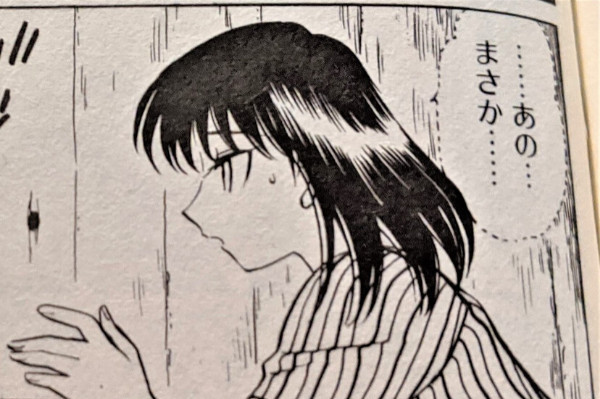The phrase “I can’t believe it” is actually one of those English idioms that doesn’t literally mean what it says. That’s why it can be a little hard to translate into Japanese for those times when you want to say it in both languages. So, what is I can’t believe it in Japanese?
Today I’m going to give you four strategies that you can use for this expression when speaking, or writing, in Japanese.
First let me borrow a couple of definitions of this idiom from the dictionary:
- used to emphasize a statement
- used to indicate surprise, dismay, or disappointment
In other words, this isn’t a literal phrase that you use when you don’t actually believe something, but rather something that a person says to express emotion or say that they don’t want something to be true, even though it is true.
1. 信じられない (shinjirarenai)
By far the most common way to say “I can’t believe it” in Japanese is with the phrase 信じられない (shinjirarenai) or one of its various forms.
I’ve heard 信じらんない and 信じていない before, but really anything that is a present-tense and negative form of the verb 信じる (shinjiru) which translates as “to believe” in English, has essentially the same meaning.
Actually, I guess I should make one more distinction about the verb. It has to also be in that potential-form which is the “can do” or the “can not do” forms of verbs and such.
At any rate, this is a set phrase that people use when something unbelievable happens.
Let’s say that you find out that one your friends is dating a super model who is super good-looking. That might be a situation where you “can’t believe it” and so you exclaim this phrase.
You can just say 信じられない or you can add on the ending よ particle to add even more emphasis to it.
Another common usage of this word is used when something is so amazing that you “can’t believe” that it’s true.
Let’s say that you’re at a new restaurant and you order their famous dish. You bite into that bad boy and are taken immediately to heaven because it tastes so dang good!
- 信じられないほどおいしい!
- shinjirarenai hodo oishii!
- I can’t believe how delicious this it!
The above phrase is a pretty common one, but you can replace the adjective おいしい which means “delicious” for anything else that is so extreme it defies your imagination.
2. あり得ない (arienai)
This next word is one that I love dearly, but don’t get to hear all that often. It comes from the word あり得る (ariuru) which means “possible” in most situations, but can also mean other things like “likely”.
All we do it to get to this special word is turn あり得る into its negative form which is あり得ない (arienai).
Ah, I just love the way this word sounds. It’s especially good when Yuno says it in Black Clover.
This word typically gets translated as “impossible” in English, which is a really good way of understanding it. What I want to highlight though is that it brings a feeling of “I don’t believe this can happen” to it.
Let’s say that your friend tells you he is going to spend all his money on lottery tickets and win it big. You know the chances of this are literally hundreds of millions to one, so statistically speaking there is simple no way he’ll win!
That’s when you look him in the eye and tell him the cold, hard truth.
- ありえない。
- arienai.
- Impossible (It’ll never happen).
3. まさか (masaka)
Now we get to another word that is pretty common to hear, but isn’t one that is easily translated into English.
As a matter of fact, it belongs to a category of adverbs that is considered “untranslatable” due to its unique nature.
I won’t go into all of the details here, since that would probably take too long, but what you need to know for today’s lesson is that it can often mean things like the following:
- don’t tell me!
- impossible!
- you’re kidding me!
It has negative connotations for the situation it’s used in.

- あの… まさか…
- ano… masaka…
- Wha… it can’t be…
When you can’t believe a situation, or a revelation, then this word might be a good one to use. You can think of it as a good exclamation similar to the first word that we went over.
4. バカな (bakana)
The last word that I wanted to cover is バカな and you might recognize it as the Japanese word for “stupid; idiot” and the like.
That being said, when this word is yelled out all on its own, it is similar to yelling “impossible; I don’t believe it; you gotta’ be kidding me” and the like.
Although I have heard this used by people in real life in casual situations, I think that it’s one of those phrases that really only ever appears in anime.
You know, those situations where the good guy is battling it out with a villain and he’s about to win, but then the villain has a super secret form that he transforms into because he is about to launch his counterattack.
The good guy can’t believe what is happening and he yells out バカな! as a form of disbelief that the enemy is able to power up and take on a new power level.
Believe It Or Not
We went over a couple of different words today. All of them were pretty common, so I have no doubt that you will run into them in anime, manga, Japanese shows, and real life conversations.
Hopefully I’ve given you enough information to understand them when they appear in this context of disbelief. My goal was simply to help you learn this new phrase, so if I wasn’t clear on any particular point, or if you have any questions that you would like to ask, let me know!
Just put it into the comment section down below and I’ll get back with you as soon as I can. Until then, thanks for reading!
Further Resources for Learning Japanese:
#3 Get My eBook (Secrets to Learning Japanese) for Free

またね!
